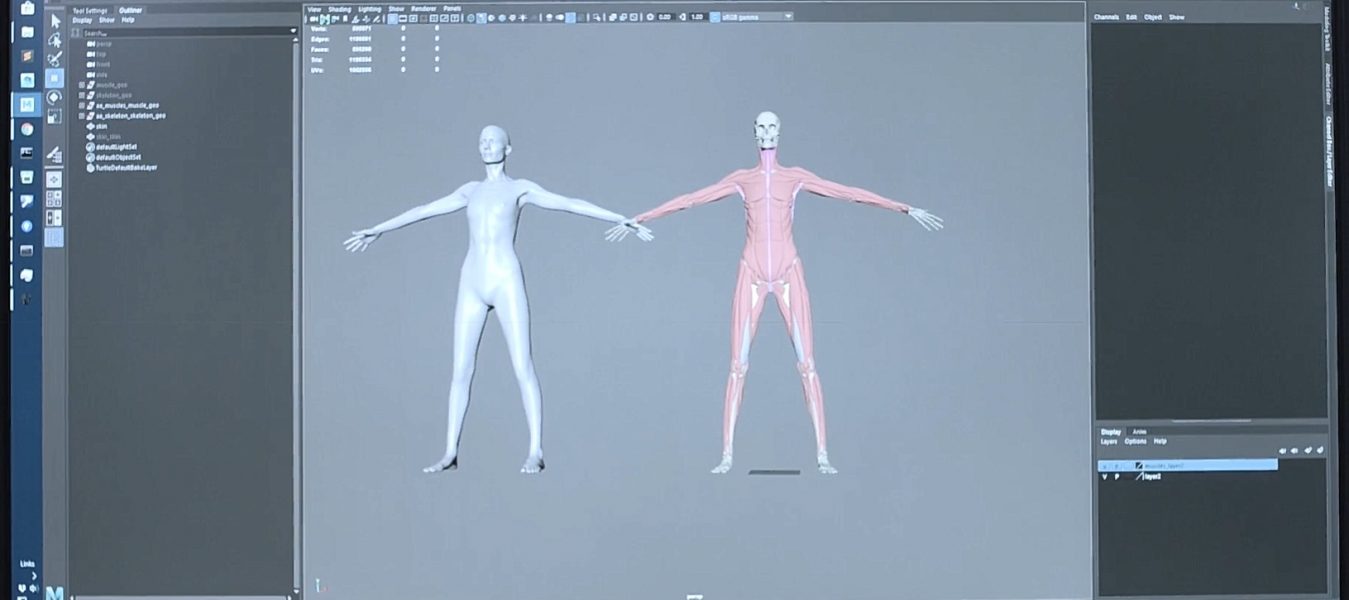As 3D spaces continue to evolve, more people are interested in creating virtual representations of themselves for virtual space. Not only are they interested in avatar representations for a virtual persona, but also in a more realistic and accurate representation of themselves that can be used in applications such as telepresence.
Ziva Dynamics works with virtual character simulations. They have entered into an agreement with iVirtual Technologies to develop the “iVirtual Gene pool,” which is stated to be a machine learning technology that will allow mobile and laptop users to create “ultra-realistic and anatomically accurate” Virtual Humans. More importantly, they say they will let people do this at no cost.
According to a press release, “The iVirtual Gene Pool will be developed by leveraging Ziva Dynamics’s comprehensive character simulation technology to create detailed anatomical models of thousands of humans reflecting the statistical diversity of the world’s population. This “Virtual Gene Pool” will provide the raw materials needed so that people all over the world can create their own lifelike and interactive Virtual Self in minutes and at no cost, simply by using scans or photos of themselves.”
The intention is to then secure and track these virtual representations using blockchain technology. The hope is for a full range of products and services to then be developed that use these virtual representations…. iVirtual will provide the underlying infrastructure for the use of the virtual identities. This will include transactional and payment services, authentication, data services, and more.
Why is this important?
The expectation is that by having anatomically correct representations of a person, you’d be able to do things you could not otherwise do. The example given is that of buying clothing. By having an anatomically correct version of yourself, you’d be able to try on clothing and verify not only the look, but also the sizing. As mentioned earlier, applications such as teleconferencing that use telepresence would also benefit in that you could see the actual representation of the person in the virtual room.
The iVirtual technology is not currently available for consumers. A beta version is expected to be available as early as mid to late 2019.
# # #
